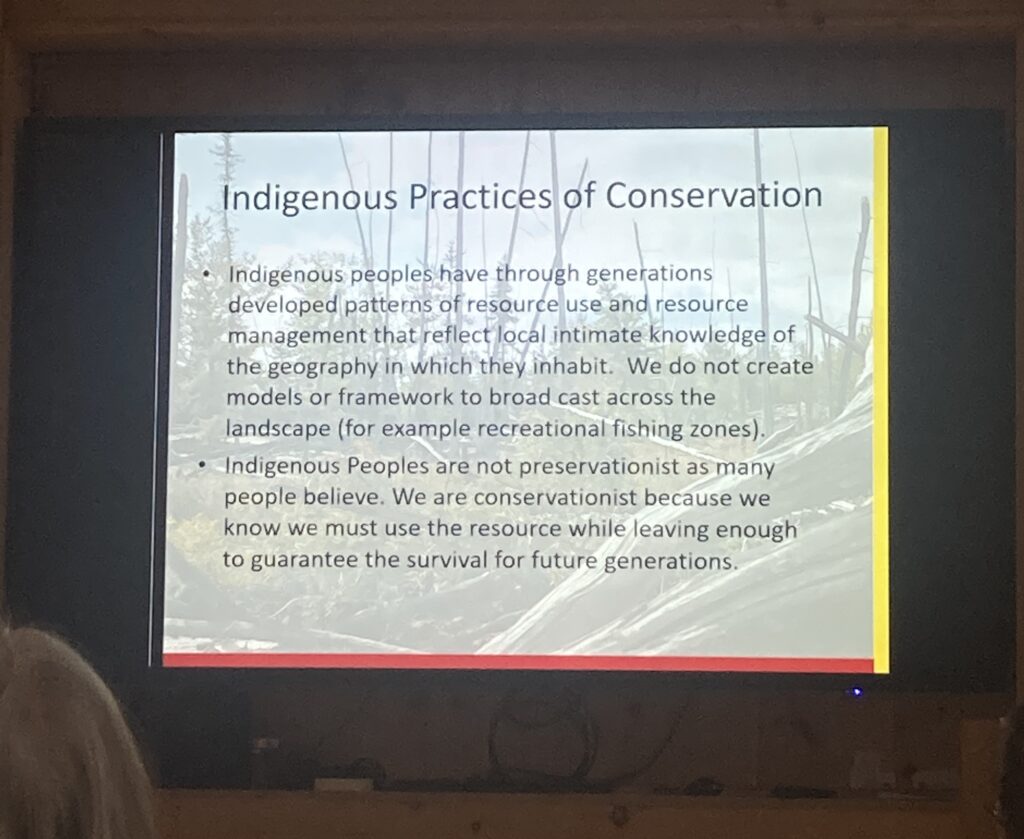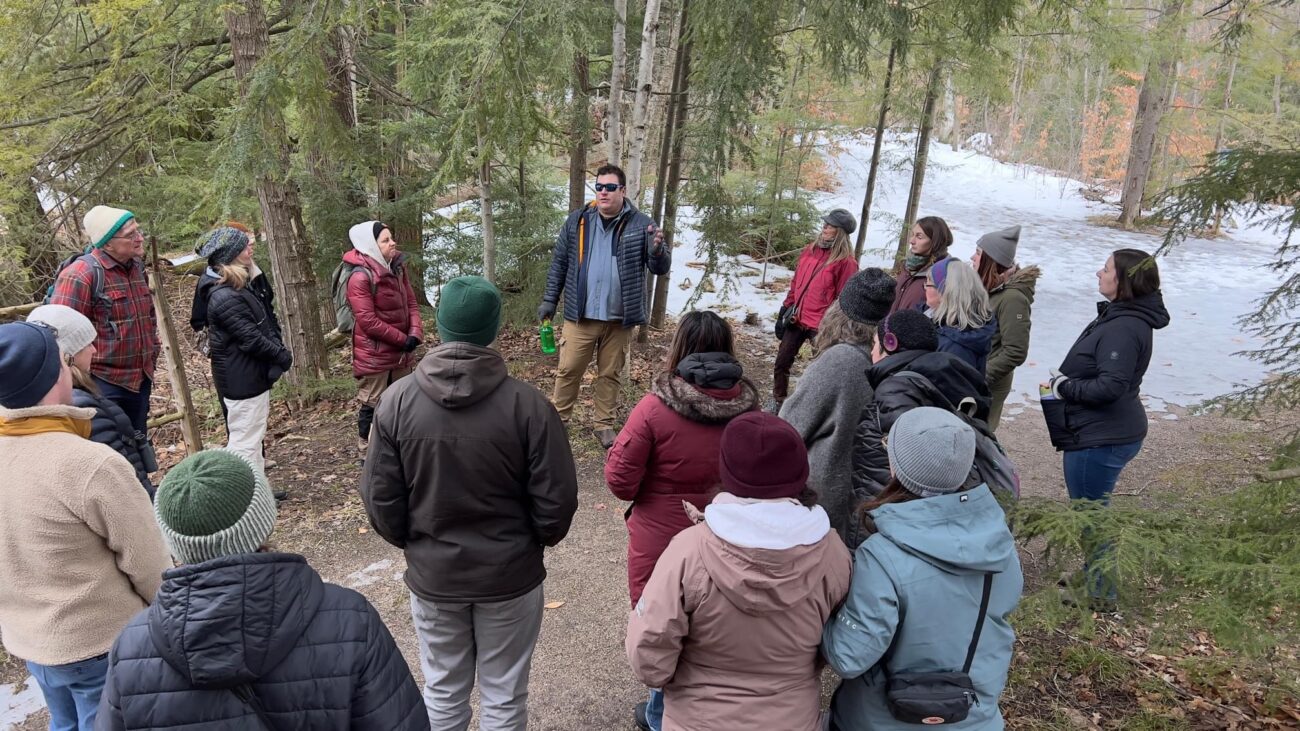On February 16th, Conservancy staff Courtney, Alysha, Madeleine, and Brandon attended a workshop at the Tiffin Centre for Conservation called Indigenous Perspectives on Conservation: Moving Beyond Species at Risk Conservation. It was hosted by the Ontario Land Trust Alliance (OLTA).
This important day of listening and learning more deeply about the historical and ongoing effects of colonialism was led by conservation ecologist & Indigenous/Placemaking specialist Gary Pritchard Giniw (Golden Eagle) from Curve Lake First Nation, home of the Michi Saagiig people. The Michi Saagiig are known as the “Salmon people” who occupied and fished the north shore of Lake Ontario.
One of the topics we discussed was the existing Species at Risk process, which Gary explained “does not acknowledge the connection Indigenous peoples have with their territories or adequately embrace Indigenous Knowledge Systems. Indigenous peoples have deeper relationships with ‘Cultural Keystone Species’ than with species that are listed via the Species at Risk Act (SARA) or Ontario’s Endangered Species Act (ESA) because of their place-based relationships.” He shared the example of a Red Wing Blackbird as a Cultural Keystone Species for Anishinaabe peoples, as it represents the first sign of spring. Gary concluded: “A more holistic and integrated approach that weaves together Indigenous Knowledge and cultural practices is needed in the conservation field. It is also important to shift our thinking from individual species to webs of relations, places and species, and ecosystems.”
After the presentation, we went on a group walk through the trails. In the first photo, Gary shares with the group the use of hemlock roots for twine in the making of canoes in this region and the loss of canoe birch (white birch) – the ones behind Gary are about as big as most birch grow in this territory.
The Couchiching Conservancy recognizes the Williams Treaties that Canada signed, and the territories we stand on. More than this, we are ready to move beyond acknowledgements and put words into action.
Miigwech to the Indigenous peoples who have had the courage to speak honestly with us. It has taken too long to get to this point, but Indigenous Reconciliation is a high priority for us.
Gary is the founder of 4 Directions Conservation and Consulting Services. They have additional learning resources on their website, which can be found here (including a quiz to test your knowledge about treaty rights between Indigenous communities and Canada!). You can also visit OLTA’s Indigenous Learning Resources here.



